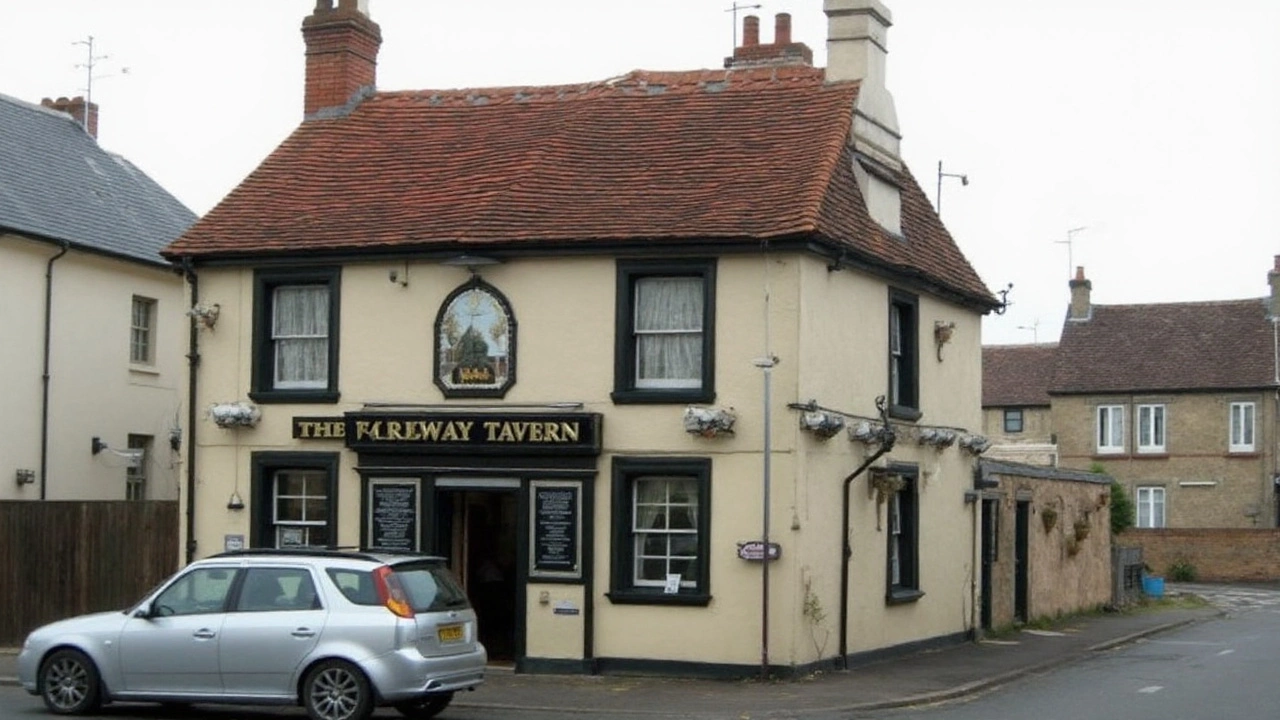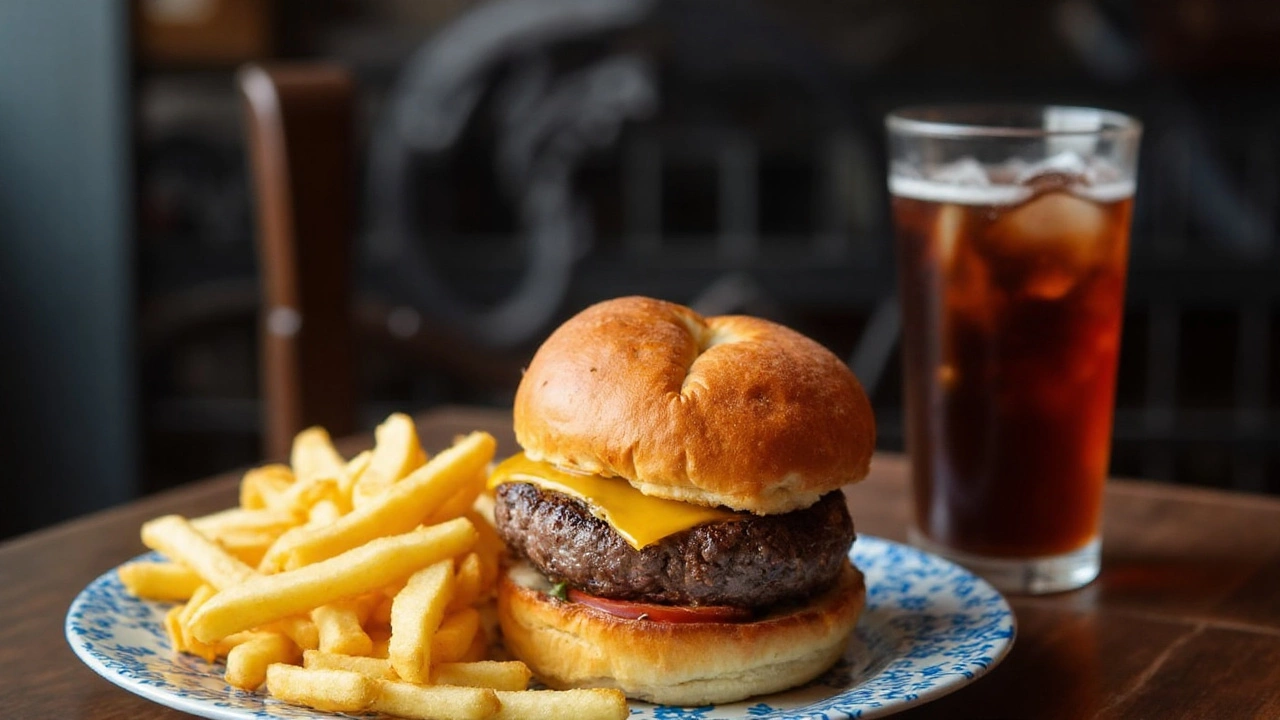Prices fall for a day at Bobbing John
A pint and a burger for less than usual in Alloa — but only for one day. The Bobbing John pub cut every menu price by 7.5% on Thursday 18 September, joining a chain-wide initiative run by Wetherspoon to show what a permanent reduction in VAT could look like on the bill.
The deal covered the lot: breakfast plates, coffees, soft drinks, burgers, steaks, and alcoholic drinks. If your usual meal costs £10, it dropped to £9.25. A £3 coffee fell to about £2.78. The offer ran all day, giving regulars and first-time visitors a clear, visible saving with no small print and no limited list of items.
Bobbing John sits in the heart of Alloa, Clackmannanshire, and is part of the JD Wetherspoon network that regularly runs nationwide price and menu campaigns. The venue has been commended at The National Pub & Bar Awards, and on busy days it acts as a catch-all spot — morning coffee stop, quick lunch, early dinner, and late-night meet-up. The pub’s name nods to local history: “Bobbing John” was a nickname for John Erskine, the Earl of Mar, a figure tied to the area’s past.
The one-day discount wasn’t a random giveaway. It was aimed squarely at the long-running VAT debate in hospitality. In the UK, food and drink sold for consumption on-site is charged at the standard 20% VAT rate. By contrast, most supermarket food is zero-rated, and takeaway cold food can fall outside the standard rate. Pub and restaurant operators say this creates an uneven field: they pay full VAT on sit-in meals while competing with retailers who don’t face the same tax on most food items. Wetherspoon has pushed for a permanent VAT cut for pubs and restaurants, arguing it would support jobs, keep prices lower, and make venues more resilient.
Why 7.5% off? It’s a simple way to show the customer what a VAT tweak might feel like in the real world. It’s not a perfect mirror of tax mechanics — different products carry different cost structures — but it’s enough to make the savings visible at the till and spark a conversation about tax policy and pricing.
The timing lands in a tough trading climate. Energy bills, supplier prices, and wage costs have all risen across the sector over the last two years. Operators say margins are tight and menu prices have had to track those pressures. For towns like Alloa, where the local pub can double as a social hub, the question is whether a lower VAT rate could help steady bills without cutting corners on staff or quality.
For customers, the day was straightforward: show up and pay less. For the chain, it doubled as a live experiment in price sensitivity. Lower the price by a clear amount, and people notice. If footfall rises, it strengthens the argument that a tax change could boost trade enough to offset part of the headline cut through higher volume.
Bobbing John’s team kept the message simple — every menu item was included, from the first breakfast orders through to late evening. That clarity matters. No exclusions meant nobody had to read the fine print or ask which items qualified. The point was to demonstrate what a broad-based cut might mean if it were baked into everyday pricing, not just used to push a handful of specials.
Across Scotland and the rest of the UK, sister pubs mirrored the same one-day approach. While the campaign doesn’t come with a government timetable for change, it keeps the VAT question on the table. Trade bodies have argued for years that Britain’s hospitality rates should be closer to those in several European countries where restaurants and bars are taxed at a reduced VAT rate. The counterpoint is the public finances: any cut would need to be funded, and ministers have to weigh that against other budget pressures.
For Alloa, the takeaway was immediate and local: cheaper rounds and plates for a day, and a reminder that tax policy shows up not just in spreadsheets but on the blackboard next to the daily specials. Prices at Bobbing John returned to normal after the promotion, but the case being made — that a VAT shift could bring permanent relief to pub-goers — is designed to linger long after the chalk is wiped clean.

The tax debate behind the promotion
Here’s the nub of it. Pubs and restaurants collect VAT on what they sell, then pass it on. Most groceries at the supermarket are zero-rated, so they don’t carry that same add-on. Chains like Wetherspoon argue that this tilts the playing field. They say a lower VAT rate for hospitality would help keep doors open, encourage people to eat and drink out, and, in time, support local jobs and investment.
Critics of a cut point to the cost: if VAT revenue drops, the Treasury has to make that up elsewhere or accept less income. Supporters counter that a healthier, busier hospitality sector could claw back some of the loss through volume and wider economic activity — more shifts for staff, more orders for suppliers, and more business rates paid by venues that stay open instead of closing.
Back in Alloa, that high-level argument was translated into something anyone could feel in their wallet for a day. Whether it changes policy is a bigger political question. But as a piece of consumer-facing campaigning, the message was crystal clear: lower VAT means a smaller bill. The Bobbing John used its one-day window to show exactly how much smaller.
